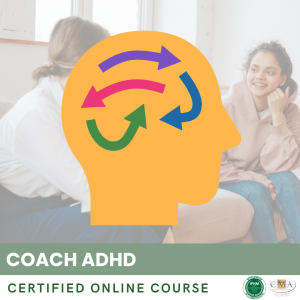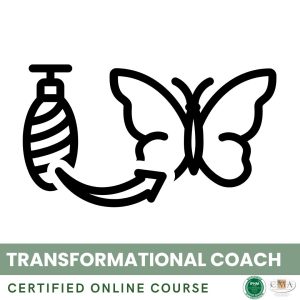Role-playing games and simulations are powerful tools in the coaching of LGBTQ+ individuals. They allow experimentation of new behaviours, development of relational skills, and building self-confidence, in a safe and benevolent environment. By acting out scenes inspired by their real lives, the coached individuals can gain perspective on their difficulties, explore resolution paths and integrate learnings in a tangible way.
Role-playing games involve taking on a character and interacting with others in a given situation, adopting the corresponding attitudes and emotions. In LGBTQ+ coaching, they can be used to work on specific themes such as coming out, affirming one’s identity, managing discrimination, or even communication within a couple. The coach proposes a scenario inspired by the individual’s concerns, ensuring that it is realistic and adapted to their comfort level.
For example, for a transgender person who is apprehensive about coming out at work, the coach might suggest acting out the scene with them, taking on first the role of the person, and then that of their manager. This helps to prepare emotionally, anticipate possible reactions, and practice assertive communication. Repeating the scene several times, trying different approaches, reinforces the sense of competence and legitimacy.
Simulations, on the other hand, involve reproducing a real context in which the person is encouraged to act and react spontaneously. They can be used to develop specific skills, such as self-assertion, conflict management or even non-violent communication. The coach creates a simulated environment, with constraints and stimuli close to reality, to promote experiential learning.
Consider the example of Alex, a 25-year-old non-binary person, who wants to assert themselves more in their friendships. Their coach proposes a simulation where they have to announce to a close friend their wish to use neutral pronouns. The coach plays the role of the friend, adopting various reactions (support, questioning, resistance), so that Alex can experiment with different ways of communicating their need and manage the emotions elicited. This simulation helps to develop a confidence that is embodied, grounded in lived experience.
One of the advantages of role-playing games and simulations is that they offer a safe space to experiment and learn from mistakes. The individual can make mistakes, fumble, start over, without fearing real consequences. The coach is there to provide kind feedback, underline progress and encourage new attempts. This trial-and-error approach fosters a deep integration of learning, which can then be transferred to real-life situations.
It is important to carefully prepare role-playing games and simulations by clearly defining the objectives and skills to be developed. The coach ensures a reassuring and respectful environment where the individual feels confident enough to experiment. They pay attention to verbal and non-verbal signals, in order to adapt the level of challenge and support the individual in their proximal zone of development.
After each exercise, a debriefing session is essential to reflect on the experience, identify strengths and areas for improvement, and anchor learning. The coach helps the individual to become aware of the resources mobilized, the emotions felt, and the insights gained. They encourage them to transfer these achievements to their daily life by defining concrete actions to implement.
Role-playing and simulations complementarily integrate with other coaching tools, such as situation analysis, cognitive restructuring, or self-assertion development addressed in prior modules. They give life to theoretical concepts, embody them in a tangible reality and anchor them in sensitively experienced knowledge.
Returning to the example of Alex, who worked with their coach on assertive communication through various role-playing games. During a final simulation session, they manage to express their need to use neutral pronouns to their family, relying on the learned techniques: affirmative “I”, expression in terms of feelings and needs, active listening to their relatives’ reactions. Despite some relatives’ reservations, they come out of this experience strengthened in their sense of legitimacy and their ability to defend their identity.
Role-playing games and simulations are invaluable tools to accompany LGBTQ+ individuals in their journey towards the authentic and fulfilling assertion of self. They allow them to gently face the challenges of the real world, to develop new relational skills and to gain confidence in their ability to create nurturing connections. By grounding in lived experience, they promote a deep integration of learning, serving the sustained transformation of the relationship with self and others.
Key takeaways:
– Role-playing games and simulations are powerful tools in the coaching of LGBTQ+ individuals for experimenting new behaviors, developing relational skills, and building self-confidence.
– Role-playing involves adopting a character and interacting with others in a given situation, adopting corresponding attitudes and emotions. They help to emotionally prepare, anticipate possible reactions, and practice assertive communication.
– Simulations consist in recreating a real-life context in which the individual is encouraged to act and react spontaneously. The coach creates a simulated environment, with constraints and stimuli close to reality, to foster experiential learning.
– These tools provide a safe environment to experiment and learn from mistakes. The coach is there to offer kind feedback, highlight progress, and encourage new attempts.
– It’s essential to carefully prepare role-playing games and simulations, clearly defining the objectives and skills to be developed, while creating a reassuring and respectful setting.
– After each exercise, a debriefing session is essential to reflect on the lived experience, identify strengths and areas for improvement, and anchor the learning.
– Role-playing games and simulations bring theoretical concepts to life, they embody them in a tangible reality and anchor them in sensitively experienced knowledge. They foster deep learning integration serving a lasting transformation of the relationship with self and others.
👉 To download docx (Editable) file click here : Click here
👉 To download PDF file click here : Click here
👉 To download MP3 file click here : Click here








